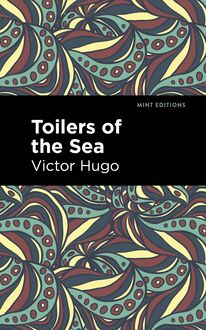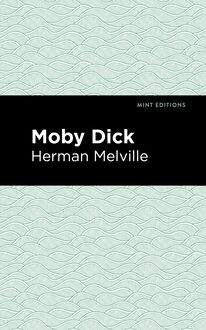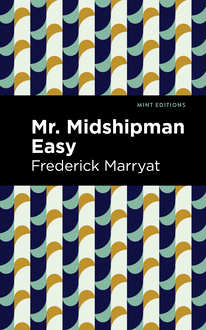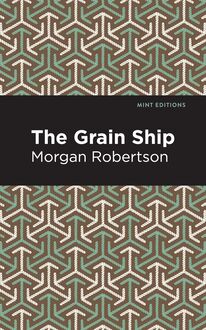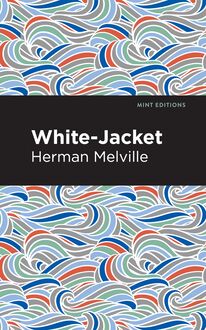-
 Univers
Univers
-
 Ebooks
Ebooks
-
 Livres audio
Livres audio
-
 Presse
Presse
-
 Podcasts
Podcasts
-
 BD
BD
-
 Documents
Documents
-
- Cours
- Révisions
- Ressources pédagogiques
- Sciences de l’éducation
- Manuels scolaires
- Langues
- Travaux de classe
- Annales de BEP
- Etudes supérieures
- Maternelle et primaire
- Fiches de lecture
- Orientation scolaire
- Méthodologie
- Corrigés de devoir
- Annales d’examens et concours
- Annales du bac
- Annales du brevet
- Rapports de stage
La lecture à portée de main
Vous pourrez modifier la taille du texte de cet ouvrage
Découvre YouScribe en t'inscrivant gratuitement
Je m'inscrisDécouvre YouScribe en t'inscrivant gratuitement
Je m'inscrisEn savoir plus
Vous pourrez modifier la taille du texte de cet ouvrage
En savoir plus

Description
Toilers of the Sea (1866) is a novel by Victor Hugo. Written while Hugo was living in exile on the island of Guernsey, Toilers of the Sea is a story of adventure that expresses the everyday struggles of a fool in love while capturing the changes wrought by political and economic revolution in Europe. “Gilliatt lived in the parish of St. Sampson. He was not liked by his neighbours; and there were reasons for that fact.” Viewed as an outsider by the seafaring community of Guernsey, Gilliat lives alone in a house deemed haunted, though no one would dare visit him anyway. Despite his skill as a fisherman, the townspeople claim he is a malevolent sorcerer, all but condemning him to a life of total seclusion. In love with the niece of a prominent shipowner, he volunteers to salvage what he can from a vessel that was wrecked some distance from the coast. Braving the elements and coming face to face with a vicious octopus, Gilliatt seizes his only chance at escaping his lonely circumstances, at finding love at last. With a beautifully designed cover and professionally typeset manuscript, this edition of Victor Hugo’s Toilers of the Sea is a classic work of French literature reimagined for modern readers.
Sujets
Informations
| Publié par | Mint Editions |
| Date de parution | 08 juin 2021 |
| Nombre de lectures | 0 |
| EAN13 | 9781513294230 |
| Langue | English |
| Poids de l'ouvrage | 1 Mo |
Informations légales : prix de location à la page 0,0500€. Cette information est donnée uniquement à titre indicatif conformément à la législation en vigueur.
Extrait
Toilers of the Sea
Victor Hugo
Toilers of the Sea was first published in 1866.
This edition published by Mint Editions 2021.
ISBN 9781513291383 | E-ISBN 9781513294230
Published by Mint Editions®
minteditionbooks.com
Publishing Director: Jennifer Newens
Design & Production: Rachel Lopez Metzger
Project Manager: Micaela Clark
Translator: W. Moy Thomas
Typesetting: Westchester Publishing Services
I Dedicate This Book
to the
Rock of Hospitality and Liberty
To That Portion of Old Norman Ground
Inhabited by
The Noble Little Nation of the Sea
To the Island of Guernsey
Severe Yet Kind, My Present Asylum
Perhaps My Tomb
V.H.
C ONTENTS I NTRODUCTION P REFACE P ART I—S IEUR C LUBIN B OOK I—T HE H ISTORY OF A B AD R EPUTATION I. A W ORD W RITTEN ON A W HITE P AGE II. T HE B Û DE LA R UE III. F OR YOUR W IFE : WHEN YOU M ARRY IV. A N U NPOPULAR M AN V. M ORE S USPICIOUS F ACTS ABOUT G ILLIATT VI. T HE D UTCH S LOOP VII. A F IT T ENANT FOR A H AUNTED H OUSE VIII. T HE G ILD -H OLM -’U R S EAT B OOK II—M ESS L ETHIERRY I. A T ROUBLED L IFE , BUT A Q UIET C ONSCIENCE II. A C ERTAIN P REDILECTION III. T HE O LD S EA L ANGUAGE IV. O NE IS V ULNERABLE WHERE ONE L OVES B OOK III—D URANDE AND D ÉRUCHETTE I. P RATTLE AND S MOKE II. T HE O LD S TORY OF U TOPIA III. R ANTAINE IV. C ONTINUATION OF THE S TORY OF U TOPIA V. T HE D EVIL B OAT VI. L ETHIERRY ’ S E XALTATION VII. T HE SAME G ODFATHER AND THE SAME P ATRON S AINT VIII. “B ONNIE D UNDEE ” IX. T HE M AN WHO DISCOVERED R ANTAINE ’ S C HARACTER X. L ONG Y ARNS XI. M ATRIMONIAL P ROSPECTS XII. A N A NOMALY IN THE C HARACTER OF L ETHIERRY XIII. T HOUGHTLESSNESS ADDS A G RACE TO B EAUTY B OOK IV—T HE B AGPIPE I. S TREAKS OF F IRE ON THE H ORIZON II. T HE U NKNOWN UNFOLDS ITSELF BY D EGREES III. T HE A IR “B ONNIE D UNDEE ” FINDS AN E CHO ON THE H ILL IV. “A SERENADE BY NIGHT MAY PLEASE A LADY FAIR , B UT OF UNCLE AND OF GUARDIAN LET THE TROUBADOUR BEWARE .” U NPUBLISHED C OMEDY V. A D ESERVED S UCCESS HAS ALWAYS ITS D ETRACTORS VI. T HE S LOOP “C ASHMERE ” SAVES A S HIPWRECKED C REW VII. H OW AN I DLER HAD THE G OOD F ORTUNE TO BE SEEN BY A F ISHERMAN B OOK V—T HE R EVOLVER I. C ONVERSATIONS AT THE J EAN A UBERGE II. C LUBIN OBSERVES S OMEONE III. C LUBIN CARRIES AWAY S OMETHING AND BRINGS BACK N OTHING IV. P LEINMONT V. T HE B IRDS ’- NESTERS VI. T HE J ACRESSADE VII. N OCTURNAL B UYERS AND M YSTERIOUS S ELLERS VIII. A “C ANNON ” OFF THE R ED B ALL AND THE B LACK IX. U SEFUL I NFORMATION FOR P ERSONS WHO EXPECT OR FEAR THE A RRIVAL OF L ETTERS FROM BEYOND S EA B OOK VI—T HE D RUNKEN S TEERSMAN AND THE S OBER C APTAIN I. T HE D OUVRES II. A N U NEXPECTED F LASK OF B RANDY III. C ONVERSATIONS INTERRUPTED IV. C APTAIN C LUBIN DISPLAYS ALL HIS GREAT Q UALITIES V. C LUBIN REACHES THE C ROWNING - POINT OF G LORY VI. T HE I NTERIOR OF AN A BYSS SUDDENLY REVEALED VII. A N U NEXPECTED D ÉNOUEMENT B OOK VII—T HE D ANGER OF O PENING A B OOK AT R ANDOM I. T HE P EARL AT THE F OOT OF THE P RECIPICE II. M UCH A STONISHMENT ON THE W ESTERN C OAST III. A Q UOTATION FROM THE B IBLE P ART II—M ALICIOUS G ILLIATT B OOK I—T HE R OCK I. T HE P LACE WHICH IS DIFFICULT TO REACH , AND DIFFICULT TO LEAVE II. A C ATALOGUE OF D ISASTERS III. S OUND ; BUT NOT S AFE IV. A P RELIMINARY S URVEY V. A W ORD UPON THE S ECRET C O - OPERATIONS OF THE E LEMENTS VI. A S TABLE FOR THE H ORSE VII. A C HAMBER FOR THE V OYAGER VIII. I MPORTUNÆQUE V OLUCRES IX. T HE R OCK , AND HOW G ILLIATT USED IT X. T HE F ORGE XI. D ISCOVERY XII. T HE I NTERIOR OF AN E DIFICE UNDER THE S EA XIII. W HAT WAS SEEN THERE ; AND WHAT PERCEIVED DIMLY B OOK II—T HE L ABOUR I. T HE R ESOURCES OF ONE WHO HAS NOTHING II. W HEREIN S HAKESPEARE AND Æ SCHYLUS MEET III. G ILLIATT ’ S M ASTERPIECE COMES TO THE R ESCUE OF THAT OF L ETHIERRY IV. S UB R E V. S UB U MBRA VI. G ILLIATT PLACES THE S LOOP IN READINESS VII. S UDDEN D ANGER VIII. M OVEMENT RATHER THAN P ROGRESS IX. A S LIP BETWEEN C UP AND L IP X. S EA - WARNINGS XI. A W ORD TO THE W ISE IS ENOUGH B OOK III—T HE S TRUGGLE I. E XTREMES MEET II. T HE O CEAN W INDS III. T HE N OISES EXPLAINED IV. T URBA T URMA V. G ILLIATT ’ S A LTERNATIVES VI. T HE C OMBAT B OOK IV—P ITFALLS IN THE W AY I. H E WHO IS H UNGRY IS NOT A LONE II. T HE M ONSTER III. A NOTHER K IND OF S EA - COMBAT IV. N OTHING IS HIDDEN ; N OTHING LOST V. T HE F ATAL D IFFERENCE BETWEEN S IX I NCHES AND T WO F EET VI. D E P ROFUNDIS AD A LTUM VII. T HE A PPEAL IS HEARD P ART III—D ÉRUCHETTE B OOK I—N IGHT AND THE M OON I. T HE H ARBOUR B ELL II. T HE H ARBOUR B ELL AGAIN B OOK II—G RATITUDE AND D ESPOTISM I. J OY SURROUNDED BY T ORTURES II. T HE L EATHERN T RUNK B OOK III—T HE D EPARTURE OF THE C ASHMERE I. T HE H AVELET NEAR THE C HURCH II. D ESPAIR CONFRONTS D ESPAIR III. T HE F ORETHOUGHT OF S ELF - SACRIFICE IV. F OR YOUR W IFE : WHEN YOU M ARRY V. T HE G REAT T OMB
I NTRODUCTION
Victor Hugo was thinking much of Æ schylus and his Prometheus at the time he conceived the figure of Gilliatt, heroic warrer with the elements. But it is to a creature of the Gothic mind like Byron’s Manfred, and not to any earlier, or classic, type of the eternal rebellion against fate or time or circumstance, that Hugo’s readers will be tempted to turn for the fellow to his Guernsey hero:
“My joy was in the wilderness—to breathe
The difficult air of the iced mountain’s top,
Where the birds dare not build—nor insects wing
Flit o’er the herbless granite; or to plunge
Into the torrent, and to roll along
On the swift whirl of the new-breaking wave
Of river-stream, or ocean, in their flow.”
The island of Guernsey was Gilliatt’s Alp and sea-solitude, where he, too, had his avalanches waiting to fall “like foam from the round ocean of old Hell.” And as Byron figured his own revolt against the bonds in Manfred, so Hugo, being in exile, put himself with lyrical and rhetorical impetuosity into the island marcou and child of destiny that he concocted with “a little sand and a little blood and a deal of fantasy” in the years 1864 and 1865. There is a familiar glimpse of the Hugo household to be had in the first winter of its transference to the Channel Islands, years before Les Travailleurs was written, which betrays the mood from which finally sprang this concrete fable of the man-at-odds. It was the end of November 1852, and a father and his younger son sat in a room of a house of Marine Terrace, Jersey—a plain, unpicturesque house; square, hard in outline, and newly whitewashed,—Methodism, said Hugo, in stones and mortar. Outside its windows the rain fell and the wind blew: the house was like a thing benumbed by the angry noise. The two inmates sat plunged in thought, possibly thinking of the sad significance of these beginnings of winter and of exile which had arrived together. At length the son (Fran ç ois Hugo) asked the father what he meant to do during their exile, which he had already predicted would be long? The father said, “I shall look at the sea.” Then came a silence, broken by a question as to what the son would do? To which he replied that he would translate Shakespeare.
Victor Hugo’s own study or eulogy of Shakespeare was written as a preamble to his son’s translation of the plays. It is not too much to connect the new and ample creative work that followed, including his great novel of Revolution, Les Mis é rables , and his poems in La L é gende des Si è cles (first series) with the double artistic stimulus gained from this conditioned solitude and his closer acquaintance with the dramatic mind of that “giant of the great art of the ages,” as he termed our English poet in the book already quoted from.
The Shakespeare book is dated from Hauteville House, 1864. Les Travailleurs from the same quarters, March 1866. The Hugos had perforce suddenly left Jersey for Guernsey in 1855, owing to the gibes and flouts of an unlucky revolutionary Jersey journal, L ’ Homme , at the two governments: Victor Hugo being already a marked man for his pains. The Guernsey house he inhabited for so many years had a spacious study in its upper story, with a large window, free to the sun and to the sea. Here he wrote, tirelessly, tremendously, as his custom was: beginning betimes in the early morning, and writing on till the time for his d é jeuner : standing at a tall desk to write in his sea-tower. You must turn to certain of his poems and to the pages of Les Mis é rables and Les Travailleurs for the mental colours and phantasmagoria of those days and years.
It would be easy to point out, resuming an immense amount of criticism of his romances and of this story in particular, the defects on the side of dramatic and true life-likeness to be found in Hugo’s prose-narrative. But it is more helpful in turning to a story-book to know what has been said unreservedly in its favour. Hugo’s greatest appreciator was superlative in his praise, and it need hardly be explained that it was Swinburne who brought his tribute to the romance of Gilliatt also, after positing the parallel claims of Hugo’s five chief romances. Of the five, they were not, he said, to be comparatively classified in order of merit. “But I may perhaps be permitted to say without fear of deserved rebuke that none is to me personally a treasure of greater price than Les Travailleurs de la Mer . The splendid energy of the book makes the superhuman energy of the hero seem not only possible but natural, and his triumph over all physical impossibilities not only natural but inevitable.” Swinburne’s love for the Channel Islands, and his poems inspired by them, were mainly due as we know to Hugo’s life and his books lived and written there.
E.R.
P REFACE
Religion, Society, and Nature! these are the three struggles of man. They constitute at the same time his three needs. He has need of a faith; hence the temple. He must create; hence the city. He must live; hence the plough and the ship. But these three solutions comprise three perpetual conflicts.
-
 Univers
Univers
-
 Ebooks
Ebooks
-
 Livres audio
Livres audio
-
 Presse
Presse
-
 Podcasts
Podcasts
-
 BD
BD
-
 Documents
Documents
-
Jeunesse
-
Littérature
-
Ressources professionnelles
-
Santé et bien-être
-
Savoirs
-
Education
-
Loisirs et hobbies
-
Art, musique et cinéma
-
Actualité et débat de société
-
Jeunesse
-
Littérature
-
Ressources professionnelles
-
Santé et bien-être
-
Savoirs
-
Education
-
Loisirs et hobbies
-
Art, musique et cinéma
-
Actualité et débat de société
-
Actualités
-
Lifestyle
-
Presse jeunesse
-
Presse professionnelle
-
Pratique
-
Presse sportive
-
Presse internationale
-
Culture & Médias
-
Action et Aventures
-
Science-fiction et Fantasy
-
Société
-
Jeunesse
-
Littérature
-
Ressources professionnelles
-
Santé et bien-être
-
Savoirs
-
Education
-
Loisirs et hobbies
-
Art, musique et cinéma
-
Actualité et débat de société
- Cours
- Révisions
- Ressources pédagogiques
- Sciences de l’éducation
- Manuels scolaires
- Langues
- Travaux de classe
- Annales de BEP
- Etudes supérieures
- Maternelle et primaire
- Fiches de lecture
- Orientation scolaire
- Méthodologie
- Corrigés de devoir
- Annales d’examens et concours
- Annales du bac
- Annales du brevet
- Rapports de stage


